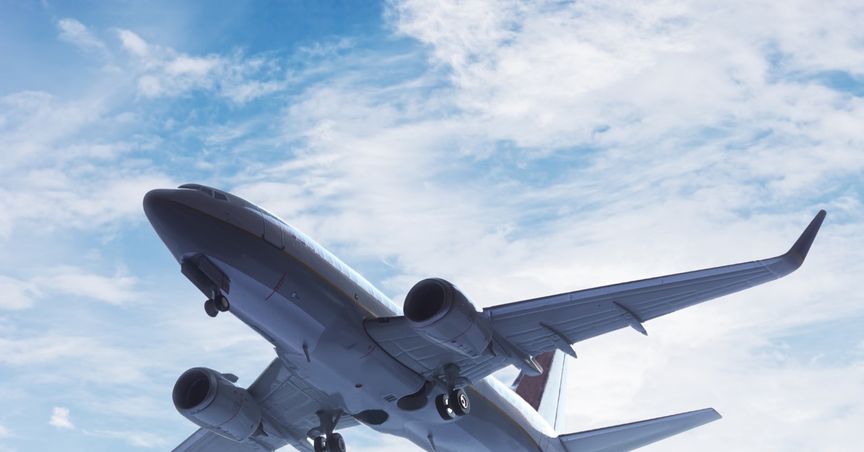Highlights
Qantas aims to make sustainability a key pillar of decision-making across all areas of the business.
The national airline plans to invest in sustainable aviation fuel (SAF).
The company also intends to boost its fuel efficiency by an average 1.5% each year to 2030.
Qantas Airways Ltd (ASX:QAN) on Thursday announced its plan to achieve net zero carbon emissions by 2050. The outline also included an interim target to lower carbon emissions by 25% by 2030. The Australian airline is “making sustainability a key pillar of decision-making across all areas of the business”.
Qantas Airways is the flag carrier of Australia and its largest airline by fleet size, international flights, and international destinations.
According to the Qantas Group Climate Action Plan, the national airline plans to invest in sustainable aviation fuel (SAF) that will account for a tenth of all fuel used by 2030 and 60% by 2050. The sustainable aviation fuel is a kind of fuel made from plants.
<iframe width="853" height="480" src="https://www.youtube.com/embed/jZyFO_INJlk" title="YouTube video player" frameborder="0" allow="accelerometer; autoplay; clipboard-write; encrypted-media; gyroscope; picture-in-picture" allowfullscreen></iframe>
The company also intended to boost its fuel efficiency by an average 1.5% each year to 2030, by “updating our aircraft fleet and using more efficient flight planning, while continuing research into next generation technologies, including hydrogen and battery power.”
The plan also outlined the company’s focus on reducing waste, including phasing out single-use plastics by 2027 and cutting down on the amount of waste sent to landfill.
What does the management say?
Commenting on the development, Qantas chief executive officer (CEO) Alan Joyce said, “Aviation is a crucial industry, especially in a country the size of Australia. Having a clear plan to decarbonise Qantas and Jetstar so we can keep delivering these services in the decades ahead is absolutely key to our future,”
“We’ve had a zero net emissions goal for several years, so today’s interim targets are about accelerating our progress and cutting emissions as quickly as technology allows. Hydrogen or electric powered aircraft are several decades away, particularly for the length of most flights, so our plan is focused on the technology that is within reach today,” he added.
Qantas share price snapshot
The stock is up over 2% on year-to-date (YTD) basis. In the past one year, the stock is up over 3%. On Wednesday, the stock closed at AU$5.26.
RELATED ARTICLE: Altech Chemicals in box seat to cash in on soaring EV demand as fuel prices heat up
RELATED ARTICLE: FPH, WTC & SUN: How much dividend these ASX blue chips are paying?
RELATED ARTICLE: From CXO to WSA: Lithium & green metal stocks that are in spotlight



